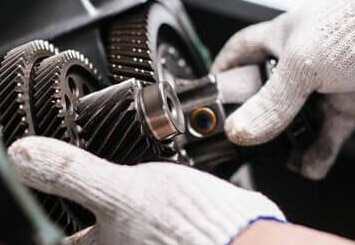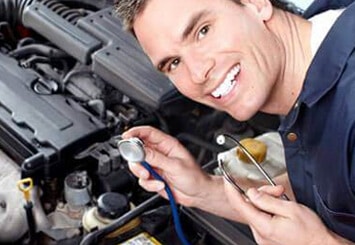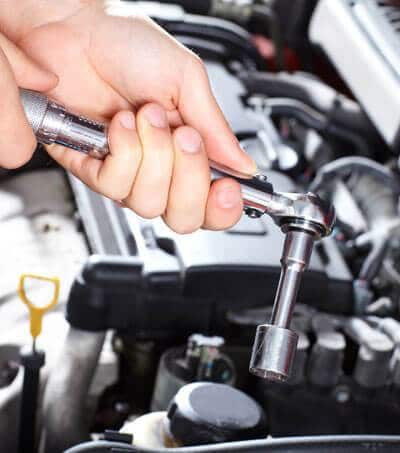


An important and oft-overlooked component of your vehicle is the differential. Gain an understanding of what it is and what it does
It’s possibly one of the most overlooked but necessary preventative maintenance procedures your vehicle needs: changing the differential oil.
What is a differential? It’s a gear train with three shafts that divides your engine’s torque – torque is a measure of force. It’s one part of your car’s drivetrain, and is designed to transmit the power from your engine to the vehicle’s wheels while allowing them to rotate at different speeds. It is particularly useful whenever you turn a corner.
We recommend you have the differential wheel oil checked regularly by a professional. Why? Because if lubrication in the front or rear differential is inadequate, dirty, or if the differential fails, it can cause significant damage to your vehicle. Dirty differential fluid could contain particles of metal, which would indicate excessive wear of internal gears. In general, you only need to change the differential oil every 50,000 to 80,000 kilometres but consult your vehicle owner’s manual.
Car wheels rotate at different speeds, especially when the vehicle is turning. If all wheels were travelling at the same speed while turning, the vehicle would experience a great deal of stuttering or skittering. Each wheel travels a different distance through the turn, and the inside wheels travel a shorter distance than the outside wheels. Since speed is equal to the distance travelled divided by the time it takes to go that distance, the wheels that travel a shorter distance travel at a lower speed. Also noteworthy, the front wheels travel at a different distance than the rear wheels.
There are different types of differentials: open, locked, limited slip, and torque vectoring. The open differential is the oldest of its kind, and it allows each of the vehicle’s wheels to rotate at different speeds. A locked differential ensures both wheels on the same axle rotate at the same speed. A limited-slip differential, meanwhile, is designed to reduce automatically the loss of drive which can result from spinning wheels on one side of an axle. Lastly, a torque-vectoring differential is a newer technology that uses sensors to provide the ability to vary the power to each wheel. It’s often found in all-wheel drive vehicles.

High mileage, heavy towing or hauling, or having your vehicle’s rear axle submerged under water (for instance, to offload a boat on a trailer) can accelerate the degradation of your differential oil’s viscosity.
How can you tell if you should have your differential checked? Like your vehicle’s transmission, if you hear strange, loud, unusual noises, it may be a sign that your differential oil is low or needs to be replaced.
If you have a question about your car’s differential or transmission, contact the Mister Transmission service centre nearest to you.




The evolution of transmissions has made these machines and systems increasingly complex. When transmission repairs are required, determining the cause and cure for what ails can be tricky.
Read More
At Mister Transmission we have access to leading-edge diagnostic equipment, enabling us to offer you the fastest and most accurate findings about what’s going on inside your vehicle’s transmission.
Read More
Just as you have other parts of your car serviced, your transmission needs maintenance to ensure a long life and avoid transmission problems.
Read More